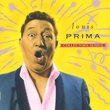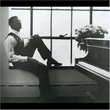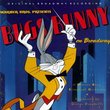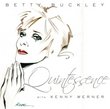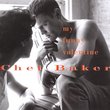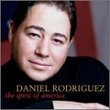| All Artists: Paul Robeson Title: Ol Man River: His 25 Greatest Members Wishing: 1 Total Copies: 0 Label: Asv Living Era Release Date: 6/16/1998 Genres: Pop, Broadway & Vocalists, Gospel Styles: Easy Listening, Singer-Songwriters, Oldies, Vocal Pop, Musicals, Traditional Vocal Pop Number of Discs: 1 SwapaCD Credits: 1 Other Editions: Ol Man River: His 25 Greatest UPC: 743625527629 |
Search - Paul Robeson :: Ol Man River: His 25 Greatest
 | Paul Robeson Ol Man River: His 25 Greatest Genres: Pop, Broadway & Vocalists, Gospel
|
CD DetailsSimilarly Requested CDs
|
CD ReviewsGreat Voice Barbara J. Chaplin | Saskatoon, Saskatchewan Canada | 03/20/2003 (4 out of 5 stars) "The songs on this cd have been remastered from the original 78s, and the original mono recordings date from 1925 - 1938. The sound quality, obviously, is not very good - there is a lot of background hiss on some of the selections, and the sound is murky - but considering the age, it's good enough. As well, I feel you get used to it: now when I listen to this cd I don't really notice the imperfect medium. Unfortunately, the fact is that if you want to listen to Robeson's wonderful bass voice, you have no choice but to put up with imperfect recordings. This cd is a good selction of his famous songs, and, at 76 minutes, is generous as well. Most of the material is from musicals, and some of the older works are spirituals. The songs are not all that old, and yet listening to them now, I was struck by the odd contrast between the exquisite, formal, beautifull-controlled, noble singing, and the lyrics. We don't talk like that anymore, and we certainly don't expect anyone who sounds like Robeson to talk like that. However, these songs are standards, and you certainly won't hear them sung any better than this anywhere else. I highly recommend this cd to anyone who wants a good selection of Robeson's earlier work." One of the most magnificent voices ever recorded jlove | 05/09/2008 (5 out of 5 stars) "Although things always change at Amazon.com (and so what I am responding to may no longer be the case by the time you read this), I was stirred to write because of the two reviews posted to this item that I viewed, one was an attack on the quality of Paul Robeson's voice without even a shred of evidence to back it up other than the author's dubious personal tastes. I wonder if the "reviewer" had even purchased the item s/he was reviewing. Ultimately all music is a matter of one's own preferences regardless of what professional critics might say, but I hope you will consider the multitude of contemporary and later music critics who considered Robeson among the great Bass-Baritones of his time as reason enough to at least give Robeson's music a try.
First, this item might not make a good choice if you are relatively new to the subject for the reasons mentioned by others--these tracks are remastered from scratchy originals. If you haven't had much exposure to Robeson, I suggest you begin with either "Songs of Free Men/ A Paul Robeson Recital" or "Paul Robeson Live at Carnegie Hall". Both of these are representative of Robeson's period later in life--but although his voice may not have been at its peak, the recording quality was better. When you listen to the Carnegie Hall concert in particular, you might want to consider that Robeson was already 61 years old and the concert was recorded on something like a home tape recorder. But despite those problems, I think you'll have no trouble recognizing one of the most marvelous voices of the last or any century. Once you have an appreciation for the artist, the recording under review becomes a marvelous addition to any Robeson collection. What is wonderful about the recordings of Robeson's earlier period is seeing the full range his voice was capable of--more than three octaves, the playfulness of some of the songs (later in life he favored more gravitas), and the evolution of his art. Compare the lyrics of "Ol' Man River" on this recording to the lyrics on the Carnegie Hall album, for example. No matter which albums you might choose, you will find a person with an incomparable mastery of the folk music of many nations singing in original languages that he could often converse in--Russian, German and French. He mastered a number of songs in Yiddish and didn't shy away from Asian languages as well. He was a frequent player on the Broadway and London stages, and you'll find a great sampling of the musical theater of his era on many of his albums. He is also credited with being one of a handful of artists to bring the art of the African-American spiritual to the attention of the American and international audiences beginning in the late 1920s. As he aged, Robeson strove to place his music in a classical context because that was considered more "legitimate" than pop music in his era. For that reason, others are right to mention him in the company of Marian Anderson who should be praised for many of the same reasons as Robeson. In this day and age of access to all of the these artists I strongly commend both Robeson and Anderson to you and hope that you will acquire and listen to these great recordings." |

 Track Listings (25) - Disc #1
Track Listings (25) - Disc #1